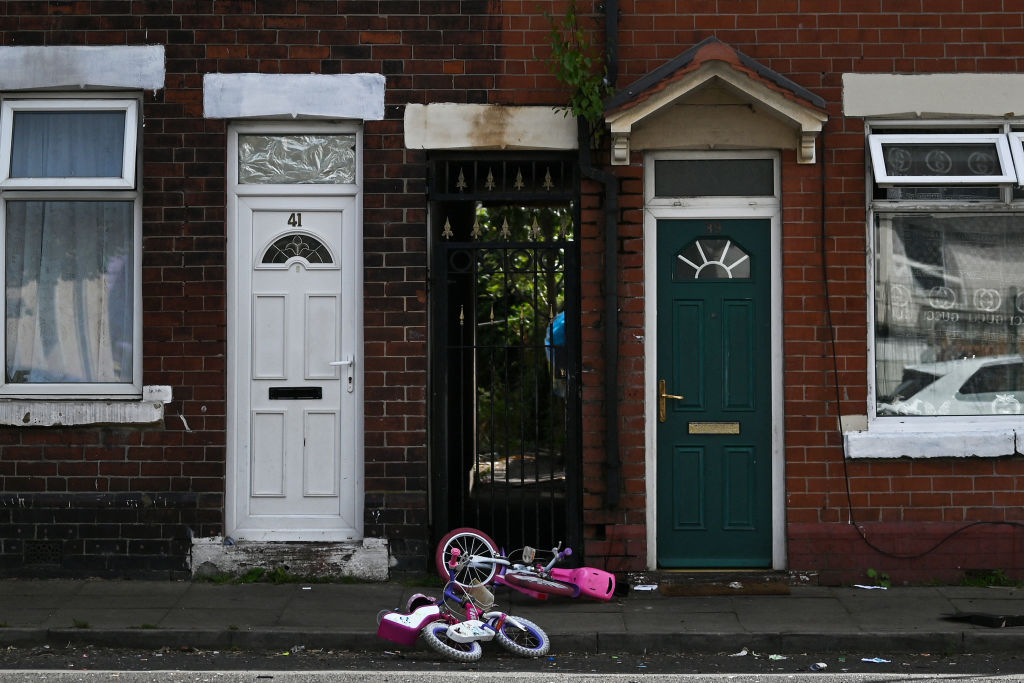Calls for a statutory inquiry into grooming gangs have been opposed by some on the grounds that the Independent Inquiry into Child Sexual Abuse (IICSA) has already been held. The argument goes that since the flagship report on child sexual abuse was accompanied with a smaller one on child sexual exploitation (CSE) by organised networks, there have been enough inquiries.
Led by Professor Alexis Jay, the IICSA focused on six case study areas for its report on CSE by “organised networks” — Tower Hamlets, Bristol, Durham, Warwickshire, St Helens, and Swansea. The IICSA made the decision not to focus on cities and towns which had “already been the subject of independent investigation” — such as Oxford, Rotherham, Telford, Rochdale, and Oldham (in its core report on child sexual abuse, there is no mention of Telford or Oldham at all). Eight themes were examined in each of the six case study areas, but none specifically examined sociocultural and psychological factors which drive forms of group-localised child sexual exploitation (GLCSE). This includes the prevalence of clannish kinship networks which originate from parts of the world where child sexual exploitation involving “family enterprises” remains a serious problem.
While the IICSA justified the exclusion of towns such as Rotherham and Telford on the basis that they have already been the subject of independent investigation, it is alarming that a 171-page report on CSE perpetrated by organised networks fails to meaningfully engage with the institutional failures surrounding the industrial-scale rape, torture, coercion, and intimidation of children in such towns. A 2018 academic paper found that men of Pakistani-Muslim heritage dominated GLCSE prosecutions, especially those who were part of tight-knit networks in the low-skilled parts of the night-time economy. Yet, cases of this crime being committed by perpetrators of this background barely feature in the IICSA’s work, with no serious analysis of the cultural factors at play and the degree to which such atrocities were racially motivated.
While Jay — who authored the report on group-based CSE in Rotherham published in 2014 — has argued that there is not the need for a statutory inquiry into grooming gangs, the research produced by the IICSA is insufficient in terms of understanding the national phenomenon of group-localised child sexual exploitation. The current research also isn’t able to shed light on public-sector accountability in cases of gross institutional mismanagement. Those referring to the IICSA to dismiss calls to hold a statutory inquiry into grooming gangs are either unaware of the content of its work, or are opportunistically doing so in the hope that further public attention is not paid to industrial-scale cases of GLCSE which are an inconvenience to their multicultural beliefs.
There is an opportunity to hold a truly national public inquiry into GLCSE which provides a voice for unheard victims and strives to determine public-sector accountability — investigating the role of central Government, the Crown Prosecution Service (CPS), local councils, police forces, social services, safeguarding teams, and the school system. It should also explore the cultural, social, and economic factors behind the development and operations of GLCSE networks across Britain. A hypothetical statutory inquiry into grooming gangs should also incorporate oft-overlooked cases of group-localised CSE within Asian Muslim communities — drawing inspiration from work done by the Muslim Women’s Network UK (MWNUK).
The nationwide scandal surrounding GLCSE should no longer be the British state’s dirty secret. A statutory inquiry into grooming gangs is needed — but it must be one that truly engages with how such horrific acts of depravity were able to take place in modern Britain and why it happened disproportionately among certain ethnic communities. Ultimately, it must hold those who failed in their duty of care accountable and while the recommendations of the Jay report have not yet been implemented — and they should be — there are still too many stones left unturned.











Join the discussion
Join like minded readers that support our journalism by becoming a paid subscriber
To join the discussion in the comments, become a paid subscriber.
Join like minded readers that support our journalism, read unlimited articles and enjoy other subscriber-only benefits.
Subscribe